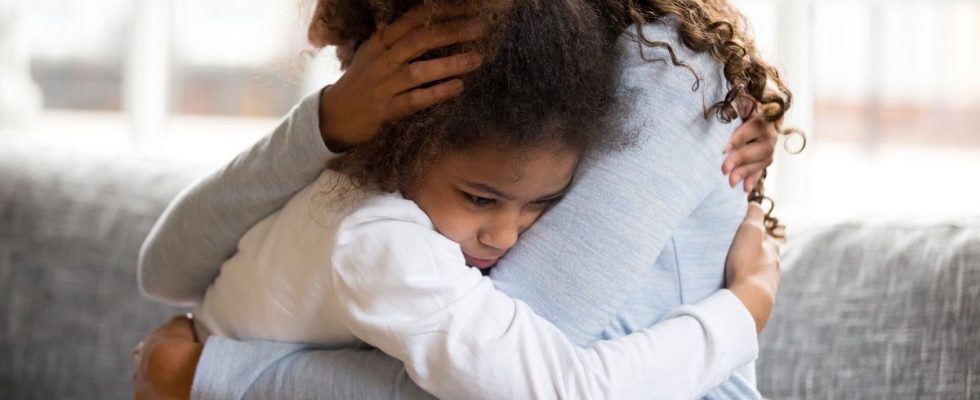Published on
Updated
Reading 2 min.
in collaboration with
Amélie Boukhobza (Clinical psychologist)
Medical validation:
January 3, 2024
Saying sorry to your children – following an inappropriate phrase or attitude – can be much more beneficial than you think. Explanations from our expert psychologist, Amélie Boukhobza.
If we often ask our dear little ones to apologize after having done something stupid or after having pushed a friend in the playground, it is more difficult for us, as adults, to say sorry. And yet: this innocuous little word is anything but futile, recalls Amélie Boukhobza, psychologist.
Why apologizing to your children is important
Apologizing to your child can be beneficial: it shows him that we know how to recognize our wrongs and allows us to establish a healthy relationship in the parent-child relationship.
“Above all, it teaches them that we are all fallible, subject to mistakes, and that it doesn’t matter if we know how to recognize them. Because recognizing these mistakes is an act of responsibility. It is also a way of showing them, by example, the importance of taking responsibility for the consequences of their actions.“, assures Amélie Boukhobza.
Children also learn a lot by “imitation”.
“Apologizing to them teaches them to do the same when necessary. This also helps to put the omnipotence of the adult in their eyes into perspective and introduces them to the art of forgiveness, which is not always easy.“, explains the specialist.
Finally, apologies can repair and even strengthen the parent-child relationship.
“They show the child that he is respected and that his feelings matter. For example, consider a parent who apologizes after overreacting. This act shows the child how to deal with mistakes constructively, even in difficult situations“, assures the psychologist.
Apologizing well: instructions for use!
Of course, an apology must be sincere, thoughtful and presented in an appropriate context. It is necessary to explain why this behavior, in this situation, was not the right one.
“Apologies are not made hastily, between two doors. They should be done one-on-one, with an apologetic tone. By explicitly recognizing your mistake, you show the value you place on the interaction. A hug or expression of tenderness can sometimes reinforce the apology. Giving the child the opportunity to express his feelings validates his emotions and shows him that he is heard“, recalls Amélie Boukhobza.
Another important criterion: it is essential to consider the age of the child.
“The way to apologize to a toddler is not the same as to a teenager. Each age group requires an adapted approach and vocabulary so that the message is well received and understood“, underlines the expert.
Finally, last point to clarify according to the specialist:
“Implying without saying it that we are fallible, but that we remain a pillar, is essential. It is not a question of diminishing ourselves but of showing that we can be both fallible and reliable to avoid generating insecurity in our children. An apology is an act of humility and courage that has a profound impact on our children’s development.”
The only “misstep” to avoid? “We avoid apologizing too often, which would ultimately diminish the value of apologies and make them a commonplace habit.“, she concludes.

